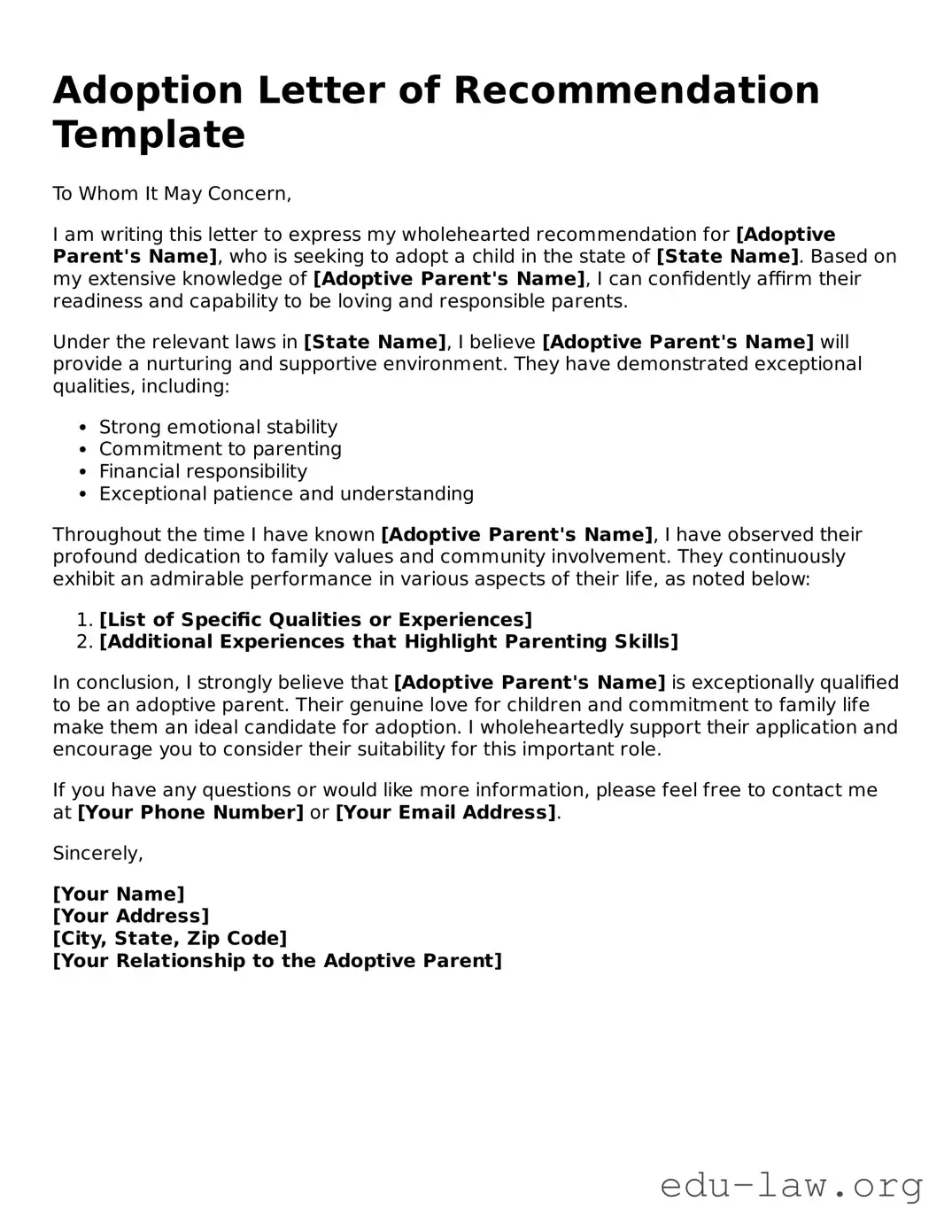What is the Adoption Letter of Recommendation form?
The Adoption Letter of Recommendation form is a document that allows individuals to provide a formal endorsement for prospective adoptive parents. Through this letter, friends, family members, or colleagues can attest to the character, values, and abilities of those seeking to adopt a child.
Who should complete this form?
Individuals who know the prospective adoptive parents well, such as friends, family members, or professional associates, should complete this form. It's important that they can speak to the applicants' suitability as parents based on personal experience and observations.
What information is typically included in the letter?
The letter should include the recommender's relationship to the prospective adoptive parents, descriptions of their parenting qualities, and examples of their strengths. Personal anecdotes that highlight the applicants' nurturing abilities are encouraged. Addressing any specific qualities that make the applicants suitable for adoption can enhance the letter's effectiveness.
How long should the letter be?
While there is no strict length requirement, a recommendation letter should be comprehensive yet concise. Generally, a one to two-page letter is appropriate, allowing sufficient detail without overwhelming the reader.
Is there a specific format for the letter?
Yes, the letter should be formatted professionally. A standard business letter format works well. This includes the date, the recommender's contact information, a greeting, the body of the letter, a closing, and the recommender's signature. Maintaining a respectful tone is also important.
Do I need to provide my personal information?
Yes, it is essential to include your name, address, phone number, and email at the top of the letter. This information helps establish credibility and allows for follow-up if needed. Ensure that all personal details are accurate and up to date.
Can I include my personal experiences with the applicants?
Absolutely. Sharing personal experiences provides valuable context and supports your recommendation. Reflecting on specific moments that showcase the applicants’ parenting abilities can make the letter more impactful.
How should I submit the completed letter?
The submission method may depend on the requirements set by the adoption agency or court. Common options include mailing a physical copy or emailing a scanned version. Always follow the specific instructions provided to ensure that your letter reaches the appropriate parties.
Is there a deadline for submitting the letter?
Deadlines can vary depending on the adoption process. It is crucial to check with the prospective adoptive parents or the adoption agency to determine specific submission timelines. Timely submission can help avoid delays in the adoption process.
What if I am unable to complete the letter?
If you are unable to complete the letter, it is important to communicate this with the prospective adoptive parents. They may be able to find another individual who can fulfill this role. Providing an honest assessment of your reasons can help them understand your situation.
